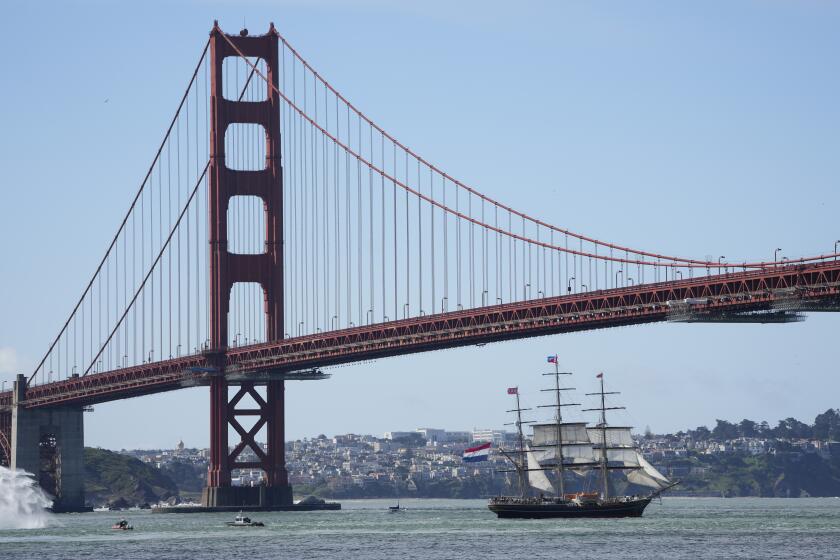Justices affirm passenger rights in police stops
Passengers in cars that are stopped by the police are “seized,” the U.S. Supreme Court said Monday, and therefore have a right to contest the legality of the stop if they are searched and arrested. The 9-0 ruling clarifies the law on traffic stops, and it overturns the view of the California Supreme Court.
Last year, the state’s highest court ruled in a Yuba City case that passengers who are searched and arrested during a traffic stop generally cannot challenge their search as unconstitutional, even if police do not have a valid reason for stopping the car.
In Monday’s opinion, the U.S. Supreme Court said that view defied common sense. Justice David H. Souter said that “any reasonable passenger” of a car that is pulled over would understand he is under the control of the police until given permission to leave. And under the court’s long-standing interpretation of the 4th Amendment, a person is “seized” by authorities when he is stopped and is not free to leave.
“When a police officer makes a traffic stop, the driver of the car is seized within the meaning of the 4th Amendment,” Souter wrote. “We hold that a passenger is seized as well and so may challenge the constitutionality of the stop.”
Monday’s ruling is likely to prove significant, however, only in the small number of cases in which a judge concludes the traffic stop itself was unjustified. If police violate the 4th Amendment when they enter a house, stop a pedestrian, or in this instance, pull over a car, then all evidence they find is thrown out.
But those cases are rare because officers have broad authority to stop cars for suspected traffic violations. Typically, when officers stop a car, they question the driver. They may also inspect passengers to make sure they do not have weapons. On some occasions, officers arrest passengers on whom they find drugs or weapons. If the original stop was legal, searches of passengers would not be threatened by Monday’s ruling.
Nonetheless, civil libertarians applauded the ruling. It means that “police will no longer have a free pass” to stop a car and then search everyone in it, said Steven R. Shapiro, legal director for the American Civil Liberties Union. “The decision properly deprives the police of what would otherwise be a virtual invitation to engage in racial profiling.”
The case decided Monday began in November 2001 when a police officer in Yuba City pulled over a Buick driven by Karen Simeroth to verify that a temporary operating permit displayed on the car matched the vehicle. The permit was valid.
The officer recognized front-seat passenger Bruce Brendlin, on whom they found a syringe. They searched Simeroth and found syringes and a plastic bag with a green leafy substance; officers arrested the driver. In the car they found tubing, a scale and other items used to make methamphetamine, according to the court ruling. Brendlin was arrested and later convicted of making methamphetamine. State prosecutors agreed that the officer did not have a legal basis for stopping the Buick.
In court, Brendlin challenged his arrest as the product of an “unconstitutional seizure” by the police. He lost before the state high court, which ruled that a passenger in a stopped car “is not seized as a constitutional matter” and has no grounds for challenging the initial stop. Last year, Brendlin appealed to the U.S. Supreme Court.
Elizabeth Campbell, a Sacramento lawyer who represented Brendlin, said his victory may have little effect on his life. He “has completed both his sentence and his parole term in this case, so whatever debt he owed to society is paid in full,” she said.
The Supreme Court has 11 cases to be decided in the current term and said it would issue more decisions Thursday.
More to Read
Start your day right
Sign up for Essential California for news, features and recommendations from the L.A. Times and beyond in your inbox six days a week.
You may occasionally receive promotional content from the Los Angeles Times.







